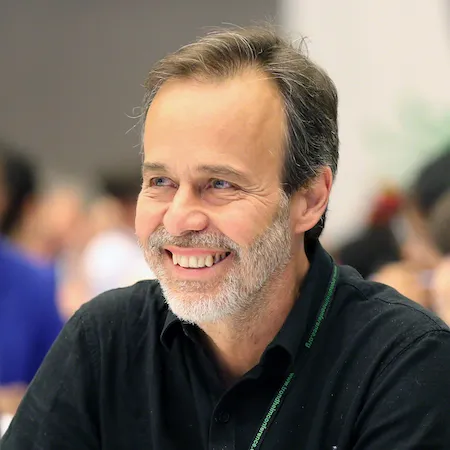In this lecture on households, populations, and complex socio-environmental systems, Dr. Eduardo Brondizio uses the example of the Brazilian Amazon to describe the increasing complexity and connectivity of the modern globalized world. He first overviews a range of theoretical perspectives that focus on different scales of change, and notes that analytical frameworks are distinct from theories and can incorporate multiple levels of analysis. He highlights the role of comparative, longitudinal, and cross-sectional analysis to work over time and space. He then describes household change and agricultural modernization in Brazil, as well as forest farms in the Amazon and the ways that global popularity of acai fruit changes management decisions at the local scale. He highlights as well increasing urbanization and the nature of collective action decision-making as communities migrate and consolidate. He ends with the notion of islands of landscape governance to describe indigenous forest reserves, and emerging regional complexity and connectivity of these landscapes. He summarizes these new research areas as still situated in old discourses but also requiring new analytical frameworks.
Authors named during the presentation: Fredrik Barth, Julian Steward, Anthony Giddens, Bruno Latour.
This video is a recording of a presentation given as part of SESYNC’s Socio-Environmental Immersion program.
-
About the Presenters
Image

Eduardo Brondizio
Dr. Eduardo S. Brondizio is Professor of Anthropology at Indiana University Bloomington, co-director of the Center for the Analysis of Social-Ecological Landscapes (CASEL), and faculty member of the Ostrom Workshop in Political Theory and Policy Analysis. Eduardo’s research combines field-based longitudinal studies of the transformation of rural and urban areas and populations in the Amazon with research on global change and sustainability. Eduardo has published extensively on human–environment interactions, small farmers’ livelihood and social identity, household socio-demography and mobility...
Image
Eduardo Brondizio
Dr. Eduardo S. Brondizio is Professor of Anthropology at Indiana University Bloomington, co-director of the Center for the Analysis of Social-Ecological Landscapes (CASEL), and faculty member of the Ostrom Workshop in Political Theory and Policy Analysis. Eduardo’s research combines field-based longitudinal studies of the transformation of rural and urban areas and populations in the Amazon with research on global change and sustainability. Eduardo has published extensively on human–environment interactions, small farmers’ livelihood and social identity, household socio-demography and mobility, landscape and land use change, agroforestry and commodity chains, and more broadly on integrating geospatial and social–ecological methods, development and poverty, ecosystem services, and institutional analysis and governance. His current research includes analysis of social–environmental vulnerabilities of the Amazon delta and application of complexity systems approaches to analyze the co-evolution of rural, urban, conservation and indigenous areas in the Amazon. Eduardo has been closely engaged with international global changed research programs and has contributed to several past and on-going global assessments. Eduardo is a member of the Science Committee of Future Earth and co-Editor-in-Chief of Current Opinions in Environmental Sustainability.
-
Supporting Materials
Presentation slides:
Reading list:
- Brondizio, E. S., Ostrom, E., & Young, O. R. (2009). Connectivity and the governance of multilevel social-ecological systems: the role of social capital. Annual Review of Environment and Resources, 34, 253-278. https://doi.org/10.1146/annurev.environ.020708.100707.
- Reading assigned by presenter to accompany lecture during original workshop, and discussed during presentation.
- Guedes, G. R., Brondízio, E. S., Barbieri, A. F., Anne, R., Penna-Firme, R., & D’Antona, Á. O. (2012). Poverty and inequality in the rural Brazilian Amazon: a multidimensional approach. Human ecology, 40(1), 41-57. https://doi.org/10.1007/s10745-011-9444-5
- Article discussed in presentation.
- Brondízio, E. S., Safar, C. A., & Siqueira, A. D. (2002). The urban market of açaí fruit (Euterpe oleracea Mart.) and rural land use change: ethnographic insights into the role of price and land tenure constraining agricultural choices in the Amazon estuary. Urban ecosystems, 6(1), 67-97. https://doi.org/10.1023/A:1025966613562
- Article discussed in presentation.
- Brondizio, E. S., Ostrom, E., & Young, O. R. (2009). Connectivity and the governance of multilevel social-ecological systems: the role of social capital. Annual Review of Environment and Resources, 34, 253-278. https://doi.org/10.1146/annurev.environ.020708.100707.